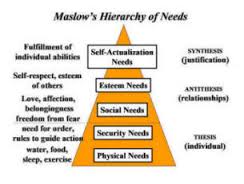This is written by Ralph Mohler the President of the largest Southern Baptist Seminary in the World.
The idea that preaching should be addressed to the self-perceived “needs” of the congregation is now well ingrained in the larger evangelical culture. The argument behind this is almost always missiological — just preach to the needs people already feel and then you can point them to a deep need and God’s provision of the Gospel.
There are several basic flaws with this approach. In the first place, our “needs” are hopelessly confused — even hidden from us. As a matter of fact, the knowledge of our deepest needs is a secret even to ourselves until we receive that knowledge by the work of the Holy Spirit and the gift of Scripture. This is God’s mercy — that we should come to discover our most basic need.
Second, our perceived or felt needs almost always turn out to be something other than needs – at least in any serious sense. We have wants and desires and concerns, but most of these are not genuine needs that lead to desperation — the kind of needs that remind us constantly that we lack all self-sufficiency. To the contrary, most of us feel quite self-sufficient. Thus, the needs we feel are the “needs” characteristic of apathetic affluence, romantic aspirations, and spiritual emptiness.
Third, preachers who believe they can move the attention of individuals from their “felt” needs to their need for the Gospel will find, inevitably, that the distance between the individual and the Gospel has not been reduced by attention to lesser needs. The sinner’s need for Christ is a need unlike all other needs — and the satisfaction of having other needs stroked and affirmed is often a hindrance to the sinner’s understanding of the Gospel.


